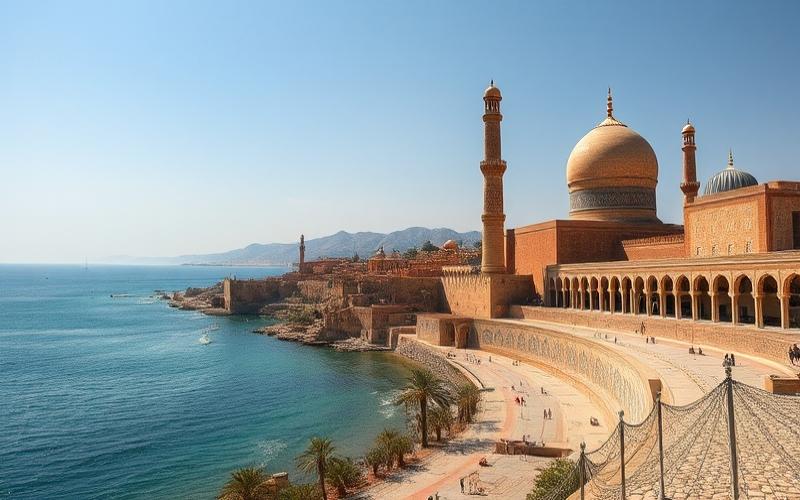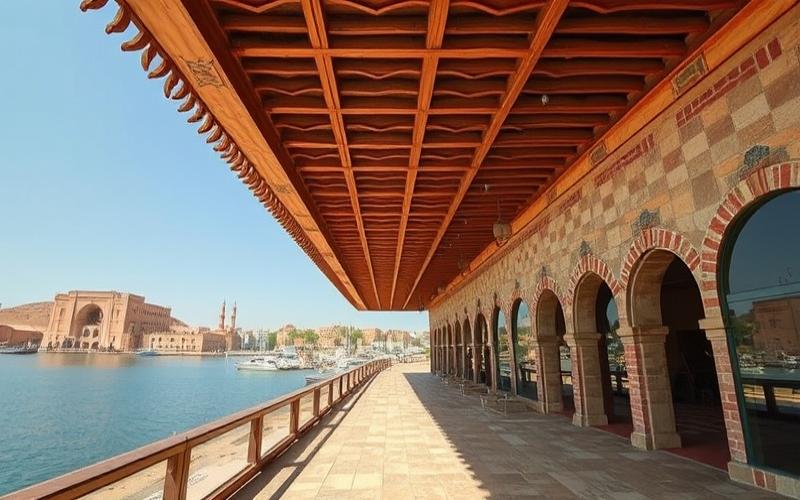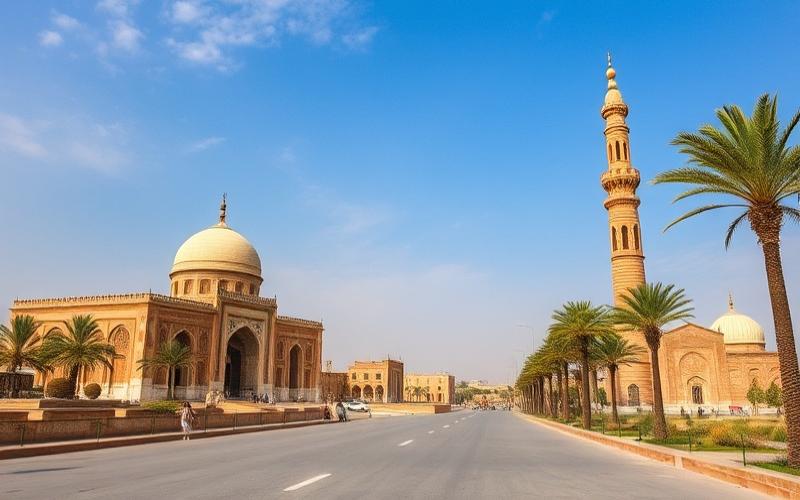
 Published on and written by Cyril Jarnias
Published on and written by Cyril Jarnias
The ongoing evolution of Bahrain’s legal framework governing foreign nationals’ rights reveals complex dynamics between state policies and individual rights.
In this context, the crucial question of available remedies against administrative decisions arises with particular urgency, challenging legal systems’ capacity to provide effective protection for foreigners who often face decisions impacting their status and living conditions.
As the country seeks a delicate balance between national sovereignty and respect for human rights, this article explores existing mechanisms, recent reforms, and potential improvements that could transform foreigners’ access to fair recourse.
Understanding the Legal Framework for Foreigners in Bahrain
Legal Framework for Foreign Residents in Bahrain
The regulation of foreign residents in Bahrain primarily relies on the Foreign Residence Law, which defines conditions for entry, stay, work, and exit from the territory. Rules are enforced by the General Directorate of Nationality, Passports & Residence, under the authority of the Ministry of Interior. This agency processes visa applications, issues residence permits, monitors compliance of stays, and ensures legislation is respected.
Types of Visas and Residence Permits
| Visa/Permit Type | Main Requirements | Validity Period | Key Notes |
|---|---|---|---|
| Short-stay Visa | Valid passport + fee payment (5 or 12 BHD) | 15 or 30 days (extendable up to 90 days) | Extendable, no work rights |
| Business/Journalist Visa | Prior application, special accreditation/authorization | Variable | Advance procedure required |
| Family (Dependent) Visa | Status linked to primary foreign worker | 2 years (renewable) | Family members cannot work |
| Work Permit | Job offer, sponsor (employer), medical exam, complete file | 2 years (renewable) | Employer submits application to Directorate |
| Residence without Work | Sufficient income, property purchase, investment or retirement | 2 years (renewable) | Work prohibition, specific property zones |
| Golden Residency Visa | 5 years continuous residence, minimum salary, or investment | Indefinitely renewable | Right to work, free entry/exit, includes family |
Procedures and Conditions
- All applications require individual files, presence of a sponsor (except exceptional cases), and sometimes a medical examination.
- Applications must be submitted to the General Directorate of Nationality, Passports and Residence.
- Extension requests must be filed at least 6 months before previous document expiration.
Restrictions Concerning Foreigners
- Employment: Foreigners can only work with a valid work permit. Family members with dependent visas are not authorized to work without status change.
- Property: Foreigners can purchase real estate, but only in designated areas (touristic or investment zones).
- Civic Rights: Foreigners do not have voting rights, nor access to public service or certain strategic sectors. Union rights are limited and subject to authorization.
- Citizenship: Access to naturalization is restricted and subject to strict conditions (long-term residence, Arabic proficiency, clean criminal record, etc.).
Procedures for Disputes or Appeals
- In case of visa or residence permit refusal, withdrawal, or cancellation, an administrative appeal can be filed with the competent Directorate.
- Appeal deadlines are generally short (often 30 days from decision notification).
- If administrative appeal fails, judicial proceedings can be initiated before the Kingdom’s competent administrative courts.
- Foreigners must respect appeal deadlines under penalty of inadmissibility.
- In urgent cases (expulsion decision, entry refusal), accelerated procedures exist, but administrative authorities retain broad discretionary power.
Summary of General Directorate of Nationality, Passports and Residence Responsibilities
- Process visa, work permit, residence, and citizenship applications
- Monitor foreigner entry, stay, and exit
- Enforce administrative decisions and ensure status regularity
- Manage appeal and expulsion procedures in coordination with judicial authorities
Key Points to Remember
- Permanent residence doesn’t exist in the standard regime, but some “golden” visas offer quasi-permanence.
- Foreigners’ rights in Bahrain remain regulated and subject to strict conditions, with tight administrative control over all procedures.
Good to Know:
The Foreign Residence Law regulates visas and permits, and the Nationality Directorate handles administrative disputes, with a 30-day deadline to contest decisions. Foreigners face employment restrictions and cannot own land property in certain areas.
Administrative Appeal Pathways for Immigration Decisions
The legal framework for administrative appeals in Bahraini immigration matters is primarily governed by the Bahraini Nationality Law, the Foreigners Law, and the Ministry of Interior’s executive regulations. These texts define foreigners’ rights, grounds for refusal or expulsion, and procedures for challenging administrative decisions.
Main Laws and Regulations:
- Bahraini Nationality Law
- Law Regarding Entry and Stay of Foreigners
- Ministry of Interior Regulation Concerning Immigration Control
Administrative Appeal Process Steps:
- Filing a discretionary appeal with the authority that made the decision (e.g., General Directorate for Immigration).
- Potential referral to a higher authority through hierarchical appeal.
- Final submission of a judicial appeal to the competent administrative court.
- Mandatory respect of deadlines: generally 15 to 30 days after official notification.
Types of Decisions That Can Be Challenged:
- Refusal or withdrawal of permit/residence
- Expulsion decision or temporary/permanent ban
- Refusal or withdrawal of visa (entry/stay)
- Refusal concerning family reunification
Summary Table of Competent Authorities by Appeal Type:
| Type of Challenged Decision | Administrative Authority | Judicial Authority |
|---|---|---|
| Document/Visa Refusal | Immigration Directorate | Administrative Court |
| Expulsion | Ministry of Interior | Administrative Court |
| Family Reunification | Social Service/Immigration | Administrative Court |
Role of Different Authorities:
General Directorate for Immigration: first instance that rules on applications and initially receives requests.
Ministry of Interior: intervenes to validate certain critical decisions (expulsions).
Administrative Court: makes final ruling if all internal avenues are exhausted; guarantees independent review.
Concrete Examples/Case Studies:
- A national receiving residence renewal refusal can file a detailed discretionary appeal within 15 days with the concerned service; if rejected, they then refer to the administrative court which reviews their file within two weeks.
- In case of expulsion motivated by alleged violation, a foreigner generally has a short deadline to request temporary suspension before the court.
Common Problems Faced by Applicants:
- Very short deadlines imposed for action after official notification.
- Language difficulties; frequent need for certified translation.
- Limited access to specialized legal assistance.
Potential Proposed Solutions:
- Systematic enhancement of access to multilingual legal information
- Development of association networks providing free counsel
- Implementation of simplified electronic procedures with automated acknowledgment of receipt
Impact on Foreigners’ Situation During Appeal Processing:
Effective filing generally suspends any enforceable measures related to the contested decision: expulsion not carried out while procedure ongoing; temporary maintenance rights guaranteed until final outcome.
The foreigner often retains fundamental rights during this period but remains in precarious situation regarding their legal future.
Checklist – Key Points When Using Appeal Pathways:
- Immediately verify exact type of decision received
- Consult official text specifying applicable deadline
- Prepare solid argumentation accompanied by translated supporting documents
- Contact local association/legal structure if needed before deadline expiration
Good to Know:
To contest an immigration decision in Bahrain, administrative appeals must be filed within 30 days after notification, primarily before the Grievances Board. Understanding legal deadlines and requirements is crucial, as non-compliance may prevent reexamination of the initial decision.
Case Studies: Expatriates Facing Administrative Decisions
Several expatriates in Bahrain have faced administrative decisions directly impacting their stay or rights. These decisions mainly concern visa refusal or non-renewal, work restrictions, and difficulties with residence permit renewals.
Concrete Examples of Expatriate Experiences:
- Visa renewal refusal for administrative reasons (e.g., absence of sponsor or non-compliance with specific conditions).
- Work prohibition in certain sectors primarily reserved for Bahrainis.
- Delay or refusal of residence permit issuance for family members.
- Exclusion from local social insurance system, requiring private insurance subscription.
Table of Administrative Decision Types and Consequences for Expatriates
| Administrative Decision | Consequence for Expatriate | Possible Legal Recourses | Observed Outcomes |
|---|---|---|---|
| Visa Refusal | Obligation to leave country | Referral to administrative court | Decisions often confirmed, except for procedural defects |
| Residence Non-renewal | Loss of legal status, expulsion | Hierarchical then judicial appeal | Case reexamination, rare success |
| Employment Access Restriction | Job loss, increased precarity | Referral to Labor Ministry, mediation | Amicable settlement sometimes possible |
| Family Reunification Refusal | Family separation | Appeal before civil courts | Decisions rarely modified |
Legal Recourses and Undertaken Procedures:
- Filing appeals with administrative courts to contest decisions (e.g., visa or residence renewal refusal).
- Referral to Labor Ministry for disputes related to employment contract or abusive termination.
- Request for mediation or embassy intervention for cases involving clear discrimination.
- If local procedures fail, some expatriates approach international instances, particularly for fundamental rights violations.
Lessons for Expatriates:
- Most appeals rarely result in administrative decision cancellation, except in cases of procedural non-compliance or clear error.
- It’s essential to keep all administrative documents and respect legal deadlines for filing appeals.
- Assistance from a lawyer specialized in foreigner rights in Bahrain increases success chances, but costs can be high.
Particularities of Bahraini Legal System Regarding Foreigners:
- Expatriate rights are often conditioned by contractual relationship with employer (sponsorship system).
- Foreigners don’t benefit from same protections as Bahraini citizens, particularly regarding social security and access to certain jobs.
- Administrative decisions can be contested in courts, but access to justice remains complex for non-residents and often depends on employer or embassy support.
- The state favors employment of Bahrainis, limiting opportunities for foreigners to occupy certain positions or renew work permits.
Expert Comments and Analysis:
“Administrative appeals in Bahrain remain very formal and success chances are low, except in cases of clear procedural non-compliance. Expatriates must be particularly vigilant about their file compliance and not hesitate to seek legal assistance at the first difficulty.”
“The sponsorship system places the expatriate in a position of dependency towards the employer. In case of dispute or termination, the expatriate risks immediately losing legal status and being expelled without effective recourse.”
Practical Advice for Expatriates:
- Regularly check validity of residence documents and anticipate renewal procedures.
- Inform yourself about specific conditions applicable to your activity sector.
- Keep copies of all exchanges with administration and employer.
- Contact expatriate associations or consular services in case of dispute.
Key Takeaways:
The administrative system in Bahrain offers few guarantees to expatriates, whose rights are closely tied to their professional situation. Recourses exist but rarely succeed except in cases of flagrant procedural error. Legal support and administrative vigilance are essential to limit risks.
Good to Know:
Expatriates in Bahrain may encounter visa refusals or work restrictions; understanding possible recourses, often unknown, that may include administrative reviews or appeals before the administrative court is crucial. According to experts, the local legal system sometimes allows effective resolution, especially if specialized advice is sought beforehand.
Disclaimer: The information provided on this website is for informational purposes only and does not constitute financial, legal, or professional advice. We encourage you to consult qualified experts before making any investment, real estate, or expatriation decisions. Although we strive to maintain up-to-date and accurate information, we do not guarantee the completeness, accuracy, or timeliness of the proposed content. As investment and expatriation involve risks, we disclaim any liability for potential losses or damages arising from the use of this site. Your use of this site confirms your acceptance of these terms and your understanding of the associated risks.





























































